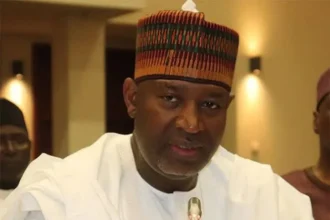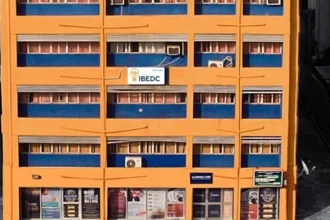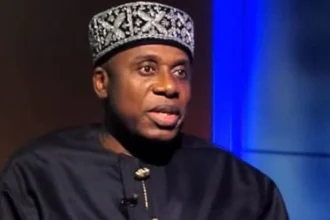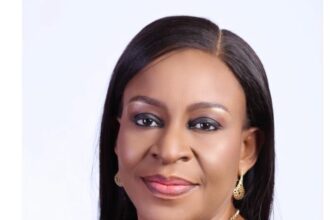...To get all news updates, Join our WhatsApp Group (Click Here)
Also Join our WhatsApp Channel (Click Here)
I have read the response of the PDP as released by Olisa my brother. I disagree with the PDP position. I think this budget has carefully articulated programs to stimulate development. I will make an attempt to provide an analysis.
The full details of the budget are not yet available but I will take the President’s speech as a bedrock.
The largest share for capital vote went to infrastructure that is power, works, roads and housing. The largest share for recurrent went to education. I love this.
This means the Fed Govt seeks to stimulate growth in the business sectors by investing in infrastructure. And the future of Nigeria is being invested in by the focus on education. In addition the Govt is funding a scheme to employ 500,000 guaduate teachers for states and local govts. I love this too.
It means that the primary and secondary schools can expect a new generation of teachers that are Internet savvy and who belong to the Jet age. The Govt needs to make sure these new teachers are monitored so that standards can be high. The new teachers should also be encouraged to see their roles as a special national assignment so that moral and enthusiasm remains very high. I think giving them a special name or title will help and will go a long way.
The President equally talked about a commitment to private sector led job creation. He said they will fund loans for market women. I like this but I would rather like to see the model and procedure of disbursement of the loans.
I NEVER DID LIKE the YOUWIN program of GEJ as the grants were not repaid and so golden opportunities for repayment recycling were lost. There was no scheme to maintain the beneficiaries in a program for reeducation and sustainable success in business. If asked I am not sure the Fed Govt knows how many YOUWIN entrepreneurs are still in business.
We need to wait to get the break Down from the budget and planning minister and the minister of finance. However I am sure whatever they will say will not be too far from the analysis I have provided above.
If they can equally stimulate foreign exchange inflows by attracting more remittances, more investment and expanding non oil export revenues then the Naira will stop falling. In order to build the Naira back they must find a way to cut down on our import bills and expand away from our import dependent economy. There is no other way.
HIS BIO:
Nicholas is a Leadership Expert.with Core knowledge and coaching skills in all areas of the proven path to success FOR Individuals, Corporations, and Nations. He is a World Class Investment and trade promoter as well as global advocate for reform in youth empowerment, development and entrepreneurship. Nicholas is a Strategy expert with Executive forthsight and strategic direction skills.
Nicholas is a World Class speaker and constantly speaks around the World on key and strategic areas including PEAK PERFORMANCE for professionals and Corporations, National Development Strategy for National, Regional and State Governments and personal success principles and strategies for Entrepreneurs, business people and Professional individuals. Nicholas is a weekly writer on National Strategy for Development, in a four page weekly column in the Guardian Newspapers, Nigeria’s most prestigious and oldest News Publication Group, he also anchors a Radio Program every week that deals directly with solutions for National, Regional and individual success and development.
Nicholas also serves as an Adviser and a Member of several Corporate Boards including the OBIJACKSON Group parent company to Nestoil Plc, the largest Nigerian owned oil and gas servicing companies in Nigeria as well as Impac Nigeria, Century Power, Energy Works,, Neconde Oil owners of OML 42, , Gonowen Oil owners of OPL 917, Hammakopp Construction, Time Power Generation, B & Q dredging etc.
Nicholas is the convener and founder of Nigeria’s largest network of Entrepreneurs in Nigeria, Empower Nigeria, and is the CEO of the Empower Nigeria Fund, an SME targeted debt and equity fund. Nicholas is the founder of the Nigeria Leadership Summit, and President of the Anabel Group.
You can get every of our news as soon as they drop on WhatsApp ...To get all news updates, Join our WhatsApp Group (Click Here)
Also Join our WhatsApp Channel (Click Here)









